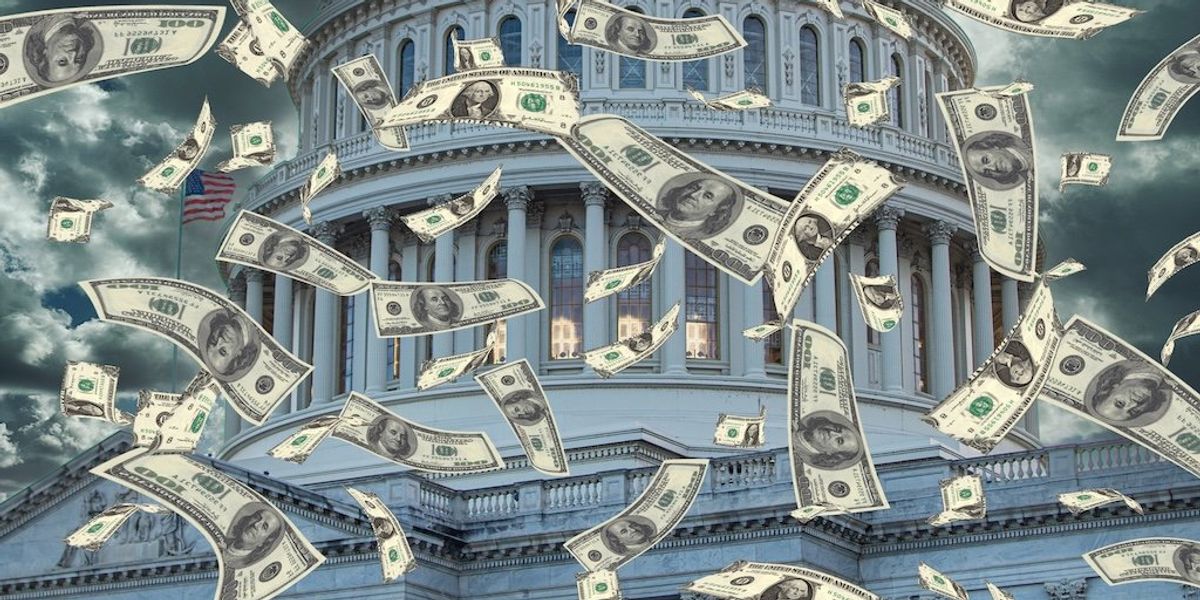

Academy Award-winner Elizabeth Taylor, married eight times to seven men, likely entered each union with the hope it would last. Good things, after all, should be permanent.
Yet in Washington, permanence is too often treated as a liability. Nowhere is this more apparent than in tax policy. Thanks to arcane rules surrounding budget reconciliation, Congress routinely enacts pro-growth reforms with an expiration date baked in.
A permanent extension of the reconciliation bill’s pro-growth elements would produce more ‘bang for the buck’ than a temporary extension.
Consider the House-passed One Big Beautiful Bill Act. Though the measure would extend and build upon President Donald Trump’s 2017 Tax Cuts and Jobs Act, it fails to permanently extend several of the law’s most pro-growth elements.
That’s a mistake. Again, good things should be permanent.
Pro-growth policies need permanence
Earlier this month, Unleash Prosperity Now — a nonprofit aligned with President Trump — organized a letter signed by more than 300 economists, myself included, urging Congress to “extend President Trump's tax cuts permanently to prevent a tax increase on January 1, 2026.”
Why do we insist upon permanence? Permanent pro-growth public policies result in better economic outcomes. In contrast, temporary policies create troublesome uncertainty, which, in turn, sows confusion for consumers and businesses, making financial planning and investment needlessly difficult.
A permanent extension of the reconciliation bill’s pro-growth elements would produce more economic “bang for the buck” than a temporary extension. It’s that simple.
According to the Tax Foundation, “Permanence for the [bill’s] four cost recovery provisions would more than double the long-run economic effect.” These provisions would include 100% bonus depreciation, expensing of research and development investment, and a more generous interest deduction limit, among others.
The Tax Foundation concludes:
The current package produces meager effects on GDP and a smaller U.S. capital stock over the long run because the cost recovery provisions sunset. As lawmakers continue to debate the tax package, they should not compromise on permanence for the most pro-growth provisions.This view aligns with the prevailing economic literature. For example, a 2019 study by the St. Louis Federal Reserve concluded, “A rise in uncertainty is widely believed to have detrimental effects on macroeconomic, microeconomic, and financial market outcomes.”
If that warning were plastered on the side of a pack of cigarettes, it would read, “Congressionally induced policy uncertainty is hazardous to the country’s economic health.”
Jobs under threat
Fortunately, Senate Finance Committee Chairman Mike Crapo (R-Idaho) is determined to extend the reconciliation bill’s most pro-growth elements permanently. Bravo, Mr. Chairman!
Permanence aside, why did more than 300 economists call for preventing the tax increase scheduled under current law?
RELATED: I was against Trump’s ‘big, beautiful bill’ — Stephen Miller changed my mind
 Photo by Chip Somodevilla/Getty Images
Photo by Chip Somodevilla/Getty Images
If taxes increase as planned, the economic fallout could be steep. Wells Fargo warns that average monthly job creation could plummet from 133,000 in the first quarter to just 25,000 next quarter — and then turn negative, with an estimated loss of 17,000 jobs per month in the fourth quarter.
If Congress fails to “spike the hike,” Wells Fargo estimates economic growth will slow to a tepid 1.1% this year and next.
A warning to deficit hawks
For those worried about the deficit, here's the paradox: Letting the economy slow — or worse, slip into recession — is the surest way to worsen the nation’s fiscal health.
To further underscore the situation, Douglas Holtz-Eakin, who directed the Congressional Budget Office from 2003 to 2005, cautions: “Given the weak state of the economy, it [the scheduled tax increase] would likely trigger a recession, and the budget outlook never gets better in a recession.”
Yes, it’s that simple.
Elizabeth Taylor once quipped, “If you hear of me getting married [again], slap me!” At least, she had the right intentions. Congress, on the other hand, routinely resorts to temporary policies to game the reconciliation process. That needs to stop.
To guard against recession, Congress should reconsider the tax increase scheduled for next year. But to boost economic growth, Congress should follow Crapo’s lead and extend permanently the 2017 Tax Cuts and Jobs Act pro-growth provisions.
.png)
 4 hours ago
7
4 hours ago
7














 English (US)
English (US)